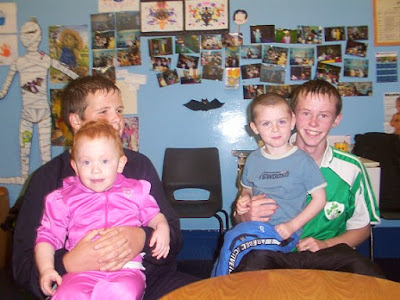Poem 39
In harmony with the Tao,
the sky is clear and spacious,
the earth is solid and full,
all creatures flourish together,
content with the way they are,
endlessly repeating themselves,
endlessly renewed.
When man interferes with the Tao,
the sky becomes filthy,
the earth becomes depleted,
the equilibrium crumbles,
creatures become extinct.
The Master views the parts with compassion,
because he understands the whole.
His constant practice is humility.
He doesn't glitter like a jewel
but lets himself be shaped by the Tao,
as rugged and common as stone.
Commentary
 |
| Pont des Arts, Paris, June, 2007 |
As I have just returned from the rather wonderful film Room directed by Lenny Abrahamson and written by Emma Donoghue, my mind is quite full of these types of question outlined above. The screenplay is based on the book of the same name that Donoghue also wrote. As a result the film is particularly true to the original novel. The plot is very simple: after having been held captive for a period of five years in a garden shed - called "Room" by the little boy - a young woman and her five-year-old son finally manage to gain their freedom. The film follows the attempts by both mother and son to cope with, in turn, their experiences of captivity and freedom. In this film, the imagination of both mother and son helps them cope with the complexity of their situation both inside and outside of the room. Big questions crop up for the viewer as they undoubtedly do for the characters: What is the real world? What is reality? What is the imagination? Where are the demarcation lines between reality and imagination? Do not imagination and reality overlap anyway? Indeed, what is the real world? Is not what's real for us the world of our perceptions anyway? In other words, does reality equate solely with our perception of it? Indeed, all literature, film, music or whatever cultural means we conjure up are essentially ways of creating meaning or structure so that we can survive in the world around us. The mother (just a grown-up adolescent anyway who was kidnapped five years previously as a teenager) needs to create a world where her son can learn to live within a dreadfully confined space.
 |
| Compassion and care for the young: Work experience: TY 2003 |
The Master views the parts with compassion,
because he understands the whole.
There is one take on perception that has always appealed to this author since he first learnt a bit about rudimentary psychology as a trainee teacher, namely Gestalt psychology. It is really a theory about how the human mind perceives and makes sense of the world. Its central contention is that the mind forms a "global whole" with self-organising tendencies. To my mind Emma Donoghue's book and Lenny Abrahamson's film illustrate this dynamic in the human being to make his/her world meaningful through imagining it as a "global whole" that has inherent self-organising tendencies. The human mind is hardwired to form a gestalt or total or unified perception of its world as a whole or as an overall or over-arching unit. This overall or over-arching perception has its own reality independent of its parts. It is interesting to note that the original phrase used by one of the first Gestalt psychologists, Kurt Koffka is "The whole is other than the sum of its parts" and not its usual misquotation as "The whole is greater than the sum of its parts." There is a particularly important difference and nuance contained in "other than" that is not contained in the idea of "greater than." What Koffka wished to underline or stress is that the whole simply has an independent existence apart from its constituent parts, not that it was greater which is far too mathematical or quantitative a concept.
Meditation, no matter what its provenance in whatever religious or non-religious context, is always about attaining perspective, of retreating from the noisy world of conflicting parts, of centering self in some interior unity or one-ness or whole, of finding a still point of existence, of collecting or recollecting the self, of reassembling or re-member-ing or putting the self back together. It is essentially about attaining and rejoicing in the view of the whole, in the unity of the totality while having complete compassion for the disjointedness and disunity for the parts. It is in that disjointedness and disunity that evil, suffering and pain exist.

No comments:
Post a Comment